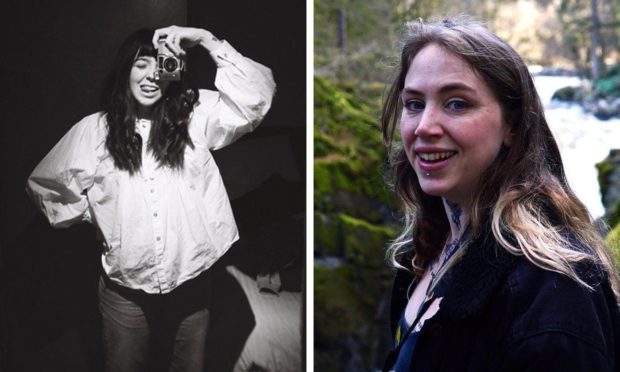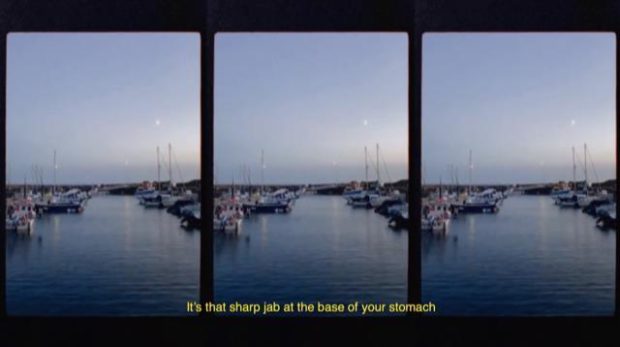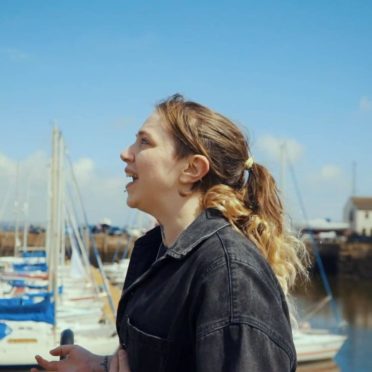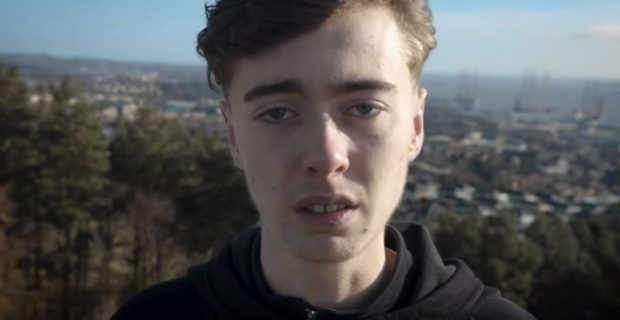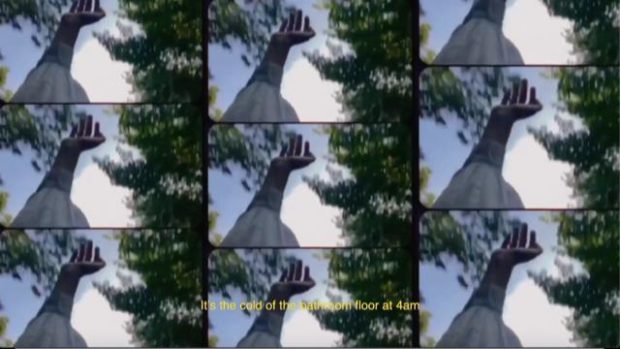Two Dundee artists have been commissioned by the Scottish Mental Health Arts Festival to tackle the implications of society going “back to normal”.
Spoken word artist Eilidh Morris and filmmaker Bonnie MacRae, both based in Dundee, have each created a short film for the festival’s My Normality project.
The aim of the project, explains SMHAF arts officer Andrew Eaton-Lewis, is to “explore what ‘normality’ means to artists across Scotland, during lockdown in particular, but also before and after”.
He says: “The words ‘normal’ and ‘normality’ have appeared in the media a lot over the past year because of the strangeness of lockdown. But they’re quite loaded terms and prompt lots of questions.
“Both Eilidh and Bonnie’s proposals demonstrated how lockdown can impact on people’s mental health in complex ways depending on what their ‘normality’ was before it began.”
Eilidh’s work Vessels conveys the chronic disruption of normality which comes with anxiety and mental health issues, using the theme of ships on a voyage.
Meanwhile Bonnie’s film Answer Machine will give voice to the silent struggle of endometriosis sufferers, for whom pain and lack of treatment is often “normal”.
I caught up with each of the artists to find out more about the important issues behind their commissions…
‘Isolation wasn’t a new concept for me’
Eilidh Morris’s commission Vessels, a music-rich spoken-word poem, premiered on SMHAF’s website on May 25. It explores the idea that for people with chronic mental health issues, going “back to normal” isn’t necessarily a relief.
Eilidh, 30, who suffers from anxiety, explains: “This is about normality and returning to it, and what that means – or doesn’t mean – to people.
“My anxiety is heightened because, while the isolation wasn’t good, that wasn’t a new concept for me. It was just that physically, there were places I couldn’t go during lockdown.
“Now you’re seeing all the news about things opening up again and people getting ‘back to normal’.
“But if you’re used to living day-to-day with your mental health being this chaotic factor that you can’t ever maintain a level of normality with, then it’s quite daunting.
“You’re seeing everything through a window again. It’s like being reminded: ‘I’m not quite part of this’.”
If this is normality at sea,
I need to find safer waters for me.”Eilidh Morris, Vessels
And it’s not just Eilidh who feels this way.
According to the Mental Health in the Pandemic study, conducted by the Mental Health Foundation Scotland, those with a pre-existing mental health problem have been the most likely to experience inability to cope and have reported suicidal thoughts at three times the rate of the general population.
Eilidh hopes Vessels can help people struggling with the idea of going “back to normal” feel reassured – or at least not alone.
The piece was filmed at Riverside and Dundee Port by local musician Johnny Threshold, using a combination of stunning drone and camera footage.
Tying into this poem’s subject matter, the film puts Eilidh’s emotional performance against the dramatic backdrop of the Tay.
“It’s all just boats,” laughs Eilidh. “And it’s this idea that, when we’re young, we all feel like we’re setting off in the same conditions, with the same set of maps and rules and ability to sail a ship in the same waters.
“But what happens if you just instantly can’t handle the waves and the storms?”
‘A lot of women struggle to be believed’
For award-winning city filmmaker Bonnie MacRae, highlighting mental health issues is paramount. Last year she released short film Mind Yersel, calling out to young men who may be struggling with suicidal thoughts or who may have lost a friend to suicide.
Now, in her upcoming My Normality documentary Answer Machine, Bonnie is shedding a light on the hidden struggles of people living with endometriosis – a severe gynaecological condition.
“Over lockdown a lot of people obviously became restricted in their day-to-day lives,” the 22-year-old director explains. “But those living with chronic conditions are used to not being able to do certain things. That is ‘the norm’ for someone living with endometriosis.”
The film features voicemails left on an answering machine from endometriosis sufferers across the UK, to those they feel are not listening to them – be it friends, family, or doctors.
“My aim in creating the film is to detail both the physical and mental impact of the condition, as well as the widespread opinion amongst sufferers that nobody is really listening – no one is picking up the phone,” she says.
“Endometriosis is a chronic condition with no cure. More than 1.5 million people in the UK live with it. And it feels like no one really wants to talk about it.”
The issue is close to Bonnie’s heart, and she hopes that her documentary will help people to understand just how severe the condition can be.
“Speaking from experience, I’ve found that many people fail to understand just how debilitating endometriosis is,” she says. “From unexpected flare-ups, to ambulance trips, to early menopause and daily morphine prescriptions.
“All of that difficult enough before adding in the mental toll the condition has on women. A lot of women struggle to be believed, to be taken seriously.
“It takes, on average, eight years to be diagnosed.”
But Bonnie is hopeful that by creating work which starts conversations around gynaecological health, she can give a voice to those living with endometriosis.
“The SNP pledged to reduce endometriosis diagnosis times in their 2021 manifesto so I am really hopeful that we are taking crucial steps forward,” she says.
“I hope the documentary will allow those who participated to feel that, for once, they do have a voice.
“I am so grateful to them all for opening up in such a candid, honest way. And to the Mental Health Foundation for supporting a story no one seemed to want to tell, until now.”
Related articles:
- Dundee artist pays tribute to late friend ‘Bear’ in coffee shop door transformation
- Mental health: Young Dundee director Bonnie MacRae welcomes awards for her ‘realistic’ male suicide film
- Why Dundee Outlaw King actor Stephen McMillan was reduced to tears by film script on city’s male suicide crisis
